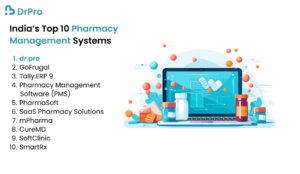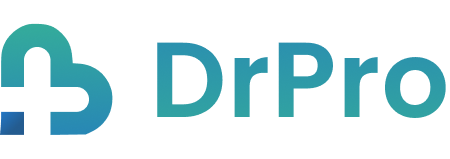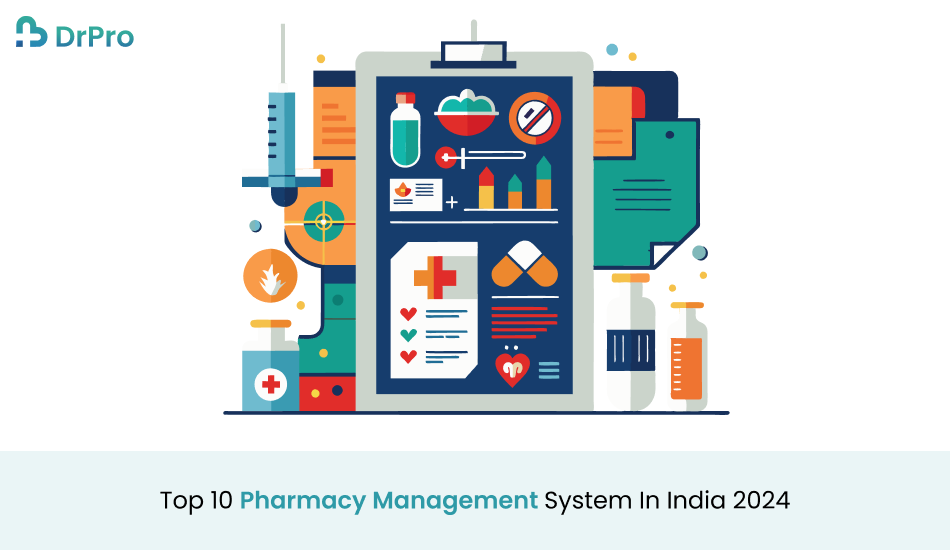Quick Summary
With the progress of digitization of healthcare, PSP has gained significance as a tool to optimize operations, secure patients’ safety and satisfy customers. This blog goes through some of the leading Pharmacy Management software System currently in use in India in the year 2024 along with their basic working, benefits, and things to consider before choosing the system.
Introduction
The dynamics of pharmacy management in the Indian context are more or less changing very frequently. Currently, the Indian healthcare market is the fifth largest globally, with more than 1.4 billion people. It is however noteworthy that managing pharmacy operations in such a large and culturally diverse country as Kenya would be a daunting task. Some of them are stock control, embracing regulation of standard regulatory bodies, and delivering top-notch patient care. These challenges have made Pharmacy Management software System viewed as important tools to address them by increasing efficiency through the use of computers and reducing the gap in communication among members of the health fraternity.
Technically, Pharmacy Management software System facilitate efficient management of prescriptions, inventory, clients, and accounts of the pharmacies. When getting deeper into 2024, the choice of the correct pharmacy management system is critical for the future stable performance of the pharmacy.
In this blog, we will learn about the Digital health transformation through Pharmacy Management systems, understand its features, and benefits of having it and learn about some best available Pharmacy Management Systems in India this year.
Pharmacy Management Software System: Digital Health Transformation
The process of moving to digital healthcare means that digital technologies have become embedded throughout the healthcare system and have quite radically altered the way that care is delivered. Such change touches several areas, e.g., telemedicine, EHR, and Pharmacy Management Software System across various sectors.
Pharmacy information technology systems are in the vanguard of this change process since they empower the pharmacies with the means to accomplish many processes that can be mechanically executed. One of the major traditional systems for handling the managing all pharmacy operations was a system that required extensive paperwork and so, therefore was very prone to a lot of errors. However, with the advent of digital solutions, pharmacies can now manage prescriptions, track inventory, and maintain patient records with greater accuracy and speed.
Key Contributions to Digital Health Transformation:

Automation of Processes:
Retail management systems include tasks such as prescription order processing, stock control, and charge processing. Besides the fact that it helps to save time, the use of automation also increases the risk of mistakes.
Enhanced Data Management:
These systems localize patient and prescription data so it becomes easier for the pharmacists to manage the information, and the modifications are always immediate. This better data management improves the decision-making processes and therefore one’s dealings with the patients.
Integration with Other Healthcare Systems:
Most pharmacies are now compatible with EHR and other healthcare systems because Pharmacy Management software System can be incorporated with EHR. This integration precisely posits that pharmacists would be able to have clean patient details about medication management hence enhanced safety in dispensing of drugs.
Improved Patient Engagement:
There are many aspects in the majority of Pharmacy Management software System that extend patient communication features like reminders for taking medication, refilling notifications, and also educational content. Such tools enable patients and give them a voice concerning their health conditions.
Regulatory Compliance:
It is felt that through automation of reporting processes, and records keeping, pharmacy management systems make it easy for pharmacies to stick to the local laws. It is of utmost importance to adhere to certain sets of rules and regulations to avert suffering from penalties or in the process jeopardizing the lives of patients.
Concisely pharmacy management systems remain a critical component of digital health that helps pharmacies to fine-tune their operations, also helping deliver better patient care.
Why Pharmacy Management Software Systems is Used
The use of Pharmacy Management Software Systems is encouraged by several factors that indicate their relevance to contemporary pharmacies. Below are the primary reasons pharmacies choose to implement these systems:
Efficiency in Operations:
The information argument about the pharmacy management system is that the system makes operations in the pharmacy highly efficient as compared to a situation where the system is not used. Most manual methods are usually tiresome and also are associated with huge errors. Hearing prescriptions as well as inventory and billing dispensing means that pharmacists can spend more time with patients through Phoenix pharmacy management.
Error Reduction:
Adverse drug effects are often potential and possible adverse effects might have a significant impact on patient health. Electronic prescribing decreases the risks of errors through programmatic checks, drug interaction notifications, and powerful record-keeping. Due to this, the focus on patient safety is important in gaining trust and establishing and maintaining the pharmacy business.
Inventory Management:
Inventory management is therefore very crucial for pharmacies to prevent situations when drug stock-outs occur. Prescription drug management systems allow real-time stock management to place orders for replenishment of stocks and counter-check for end products where there are signs of expiring products. This capability is most advantageous to pharmacies in that it minimizes the stock and the chances of expending excess drugs on the market.
Regulatory Compliance:
The pharmacy sector is very much regulated and these regulations differ from one country to another. This type of system helps pharmacies to remain compliant as the system has the means of automating the reporting, record keeping, and helping specialized control over any substances that are on the list of those that are highly controlled. It is important for legal reasons and patient’s safety from some type of harm.
Patient Safety and Care:
The pharmacy/barcode systems also improve the care given to patients by enabling the pharmacists to get details of the patients including the patient’s history in terms of drugs and any drug allergies. The data enables pharmacists to make the best therapeutic decisions when dispensing medications; therefore, avoiding adverse and inefficacious medications.
Financial Management:
This paper recognizes the importance of sound management of resources in sustaining the operations of pharmacies. A computerized system for pharmacies enables easy billing and payment, insurance claim processing, and financial records. This capability assists pharmacies in having sustainable stock and making the right financial decisions.
Improved Customer Experience:
In this era especially in the healthcare industry customer service is a key drive to customer loyalty especially with the growing competition. Management systems for pharmacies allow for a better serving of patients, with lower waits and better service delivery. Services like refill reminders and personalized messages make the whole experience with a company more beneficial for the customer.
Data Analytics and Reporting:
Information derived from the management system is useful in reporting and analyzing some operations of the pharmacy. There is a great opportunity for tracking the sales and using this data for controlling the further performance of the inventory, as well as finding out the patient population information.
Core Features of Pharmacy Management Software System

- Prescription Management
- Inventory Management
- Patient Profile Management
- Drug Interaction Checks
- Reporting and Analytics
Advantages of Pharmacy Management Software Systems
The use of pharmacy management systems is one way through which pharmacy operations stand to benefit for the following reasons. Below are some of the key benefits:
Operational Efficiency:
The absence of the influence of automated systems implies that routine tasks imply less work on the side of the pharmacy workers. This enhanced workflow also means that pharmacists spend more time on customer relations with resultant better service delivery and satisfaction.
Error Reduction:
Through checks and alerts, the Pharmacy Management Software System reduces the chances of having the wrong prescription. This concentration on accuracy also helps to decrease patient harm and possible adverse drug events.
Customer Satisfaction:
customers are more satisfied when they order prescriptions are served faster and are provided with accurate prescriptions. Children and adult patients also value healthcare facilities especially pharmacies that offer their services by recommending themselves.
Inventory Control:
Benign Inventory controls lower rates of expiring drugs and makes sure that drugs will always be available when required. Track and re-order methods assist in carrying out stock management on a real-time basis for the pharmacies.
Financial Management:
Industry best practices enhance billing accuracy and expedite claims processing leading to better cash flow and less work on the staff at the pharmacy. Profession financial reporting offers a glimpse at the profitability level and reveals the problems.
India’s Top 10 Pharmacy Management Systems

Here’s a detailed look at the top pharmacy management systems available in India in 2024:
DrPro:
DrPro is one of the most popular EMRs for managing pharmacies and is appreciated for its functionality and attractive design. DrPro‘s provides capabilities for prescription management and ordering, stock control, and billing integration. DrPro is highly effective for pharmacy operators who have effective customer support and instruction.
GoFrugal:
GoFrugal is quite flexible and can be implemented in any scale of pharmacy business due to this, many businesses have embraced it. That is why the system features integrated inventory management tools that are effective and efficient in forecasting and reporting, as well as offers tools and settings that can be adjusted according to the requirements of the pharmacy.
Tally.ERP 9:
Tally has built its reputation for managing accounting and financial reports and small to medium-sized pharmacy planning can get many perks using Tally. The integration of a simple yet effective pharmacy management system with leading accounting features assists the pharmacies in managing good cash flow.
Pharmacy Management Software (PMS):
PMS is a comprehensive system catering to the requirements of a pharmacy only. It provides features to manage the prescription, stock, and patient information to a large extent. PMS is easy to use and it is tailored towards the improvement of the operations of the pharmacy.
PharmaSoft:
To be renowned for user experience we offer critical management solutions to optimize pharmacists’ work. It is user-friendly in that pharmacy staff can easily manage tasks through the system.
SaaS Pharmacy Solutions:
They also give pharmacies high flexibility and availability since they are web-based applications. SaaS pharmacy solutions allow for operation management from anywhere and this is perfect for the modern, mobile-oriented environment of the pharmacy.
mPharma:
mPharma provides value to the pharmacy by creating a channel of communication and engagement with patients. Other functions include but are not limited to; Medication alert and refill notification, hence improving the patients’ experience.
CureMD:
Another advantage demonstrated in the article is compatibility with electronic health records; they help to improve patient data and facilitate cooperation between clinicians. This means that the more stress in patient care is given by the system, the better the option for pharmacies that are special in patient care.
SoftClinic:
As for the integrated management for the clinic and pharmacy, SoftClinic is a perfect choice with the merged separate modules. Both of focuses also support the to-and-fro interaction between the pharmacies and the healthcare providers in managing the patient’s health status.
SmartRx:
SmartRx is one of the cheapest systems, which will be perfect for pharmacies focusing on the optimization of their activities without a great amount of investment, as it offers only the necessary tools for the efficient management of a pharmacy. This system has been embraced due to its low costs and simplicity by many of the independent pharmacies.
Conclusion
As the world moves to interconnected advanced systems, the Pharmacy Management software System has become critical to improving operations, patient safety, and client satisfaction. Choosing the right pharmacy management system can help today’s pharmacies translate their technical capabilities into better efficiency, lower medication error rates, and more satisfied patients.
In the year 2024 and beyond the pharmacy sector in India is yet to transform and there is no over-dramatizing the selection of the right management system. Thus, the knowledge about features, advantages, and selection criteria allows pharmacies to make correct decisions for their workload and improves the quality of service offered.
Together, ProjectTree and DrPro offer a powerful integration that enhances productivity and effectiveness across project management and healthcare sectors
FAQs
Q1. What is a Pharmacy Management Software System?
An aspect most closely related to the Pharmacy Management software System is that it is an application that enables the management of some functions of a pharmacy, including prescription processing, stock and sales, billing, and patronage.
Q2. How can a Pharmacy Management Software System improve patient care?
The Pharmacy Management software System make patient safety more efficient by decreasing medication errors and providing broader patient records and proper medication dispensing.
Q3. Are Pharmacy Management software Systems compliant with regulations in India?
Yes, reliable pharmacy management systems are usually developed to consider local laws and therefore assist the pharmacies in staying legal.
Q4. Can pharmacy management systems integrate with other healthcare software?
The vast majority of modern solutions allow for connecting with other systems, such as electronic health record (EHR) systems, and others, enhancing the potential for sharing information and improving patients’ outcomes.
Q5. What should I consider when choosing a pharmacy management system?
An organization’s selection criteria should include, for example; scalability, user interface, system integration, legal requirements, customer service, and total cost that have to do with the system for it to best fit the pharmacy.


